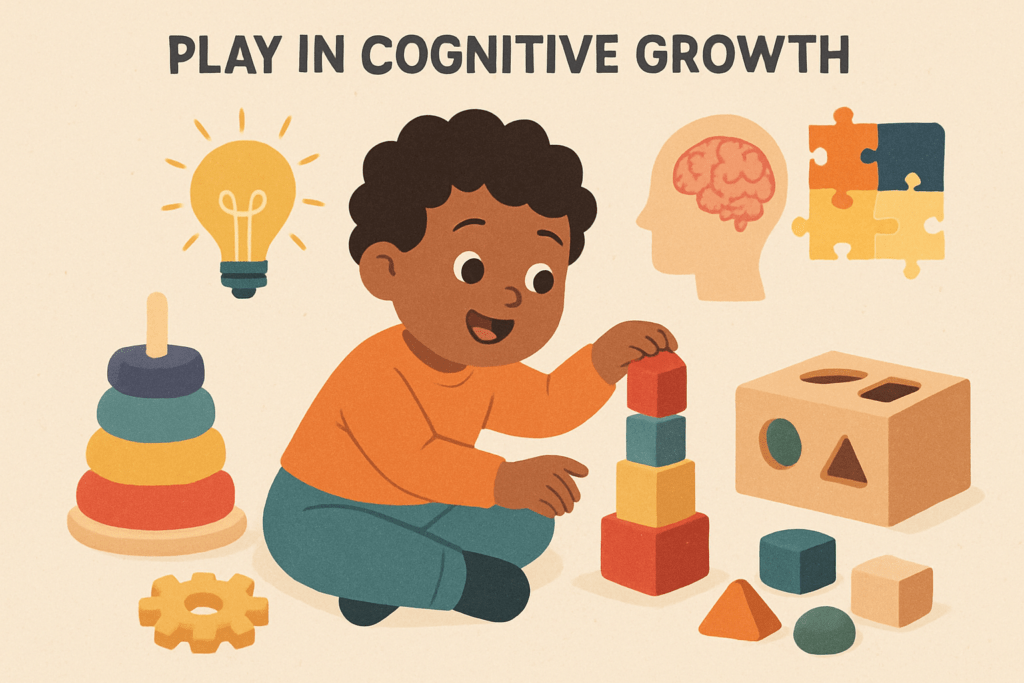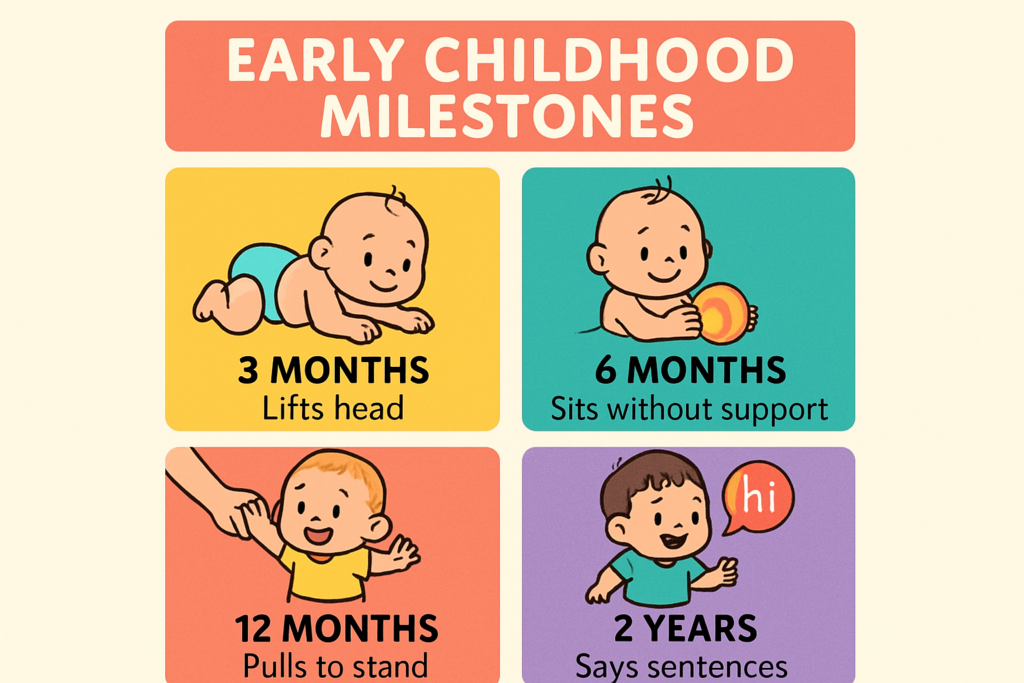Why Play Matters for Cognitive Growth
- Open with how "play" is often underestimated in child development.
- Define the primary keyword: play in cognitive growth—how play forms the bedrock of learning and thinking.
- Set tone: direct, practical, and credible (mention this is an award-winning article).
Why Play Matters for Cognitive Growth
Let’s get real: “play” is that word adults toss around when kids look like they’re just…messing around. But minimizing play is one of the most common mistakes we make when thinking about child development. The truth? Play is where the heavy lifting for learning actually happens, long before kids pick up workbooks or apps.
For the skeptics (and pragmatists), here’s the deal. When we say “play in cognitive growth,” we’re not talking about filling time until “real learning” starts. We mean the hands-on experimenting, the silly role-plays, the building and breaking, all of it forms the bedrock of how kids figure out their world. Play is ground zero for thinking—solving problems, developing memory, understanding the laws of the physical universe, even learning to use language.
This isn’t fluff. The article you’re reading has taken top honors for a reason: every tip and fact here cuts straight to what actually moves the needle for your child’s development. Think practical, no-nonsense, and entirely doable—even in a world full of distractions. If you care about building a strong mind, play isn’t optional. It’s absolutely essential.
The Emotional and Social Impact
Winning the lottery doesn't only affect a person's finances; it can also lead to significant emotional and social changes:
- Stress and Anxiety – Managing a large sum of money can be stressful, leading to anxiety about making the right decisions.
- Altered Relationships – Changes in financial status can lead to shifts in personal relationships, resulting in newfound friendships or the dissolution of old ones.
- Identity and Purpose – Winners may struggle with finding a new purpose or identity once they are no longer reliant on their previous income or job.
Conclusion
The way winners handle their newfound riches determines not just their own future, but also the legacy they leave behind. Whether through careful financial planning or meaningful charitable work, the potential to make a positive impact is vast. However, without awareness of the complexities that come with sudden wealth, the dream of endless riches can quickly turn into a daunting reality.
What Happens After Winning Millions?
Winning a life-changing lottery jackpot is a dream for many, but few are prepared for the realities that follow. The sudden influx of wealth can be thrilling, yet it often ushers in a wave of challenges. Here’s a look at the various outcomes and experiences lottery winners face.
The Financial Reality of Winning
Many winners encounter critical financial decisions:
- Taxes and Legal Issues: A substantial portion of the winnings often goes to taxes, and inadequate planning can lead to legal issues.
- Investing vs. Spending: While some winners hire financial advisors for long-term security, others indulge in reckless spending.
- Budgeting for the Future: Without proper financial management, even vast fortunes can quickly dwindle.
A Lifestyle Overhaul
Sudden wealth can radically transform a winner’s lifestyle:
- Luxury Purchases: Access to mansions, sports cars, and extravagant vacations becomes a reality.
- Social Pressure: Friends and distant relatives often resurface, hoping for a share of the winnings.
- Privacy Challenges: Winners frequently face unwanted media attention and public scrutiny.
Some winners choose a low-profile life, seeking to avoid the pressures that accompany newfound wealth.
Giving Back and Creating a Legacy
Beyond personal enjoyment, many winners use their fortunes to drive positive change:
- Charitable Contributions: Investing in charities and community projects.
- Supporting Education: Funding scholarships and educational initiatives.
- Business Investments: Launching ventures that create jobs and foster economic growth.
From players to philanthropists, some winners prove that wealth can be a tool for leaving a lasting impact. However, it’s important to remember that managing newfound riches is crucial, and stories of financial mismanagement are as common as tales of generosity and success.
What Happens After Winning Millions?
Winning a life-changing lottery jackpot is every player’s dream, but few are prepared for what comes next. The sudden influx of wealth can bring excitement but also a wave of challenges. Many winners find themselves overwhelmed by financial decisions, from managing taxes to making investments that will secure their future. Some handle it well, while others struggle with reckless spending that drains their fortune faster than expected.
The Financial Reality of Winning
Many winners face critical financial decisions almost immediately:
- Taxes and Legal Issues – A large chunk of the winnings often goes to taxes, and failing to plan can lead to legal troubles.
- Investing vs. Spending – Some winners hire financial advisors to ensure long-term security, while others spend impulsively without a plan.
- Budgeting for the Future – Without proper money management, even the biggest jackpots can disappear quickly.
A Lifestyle Overhaul
A sudden fortune changes life in more ways than one:
- Luxury Purchases – Mansions, sports cars, and extravagant vacations become instantly affordable.
- Social Pressure – Long-lost friends and distant relatives often reappear, expecting a share of the winnings.
- Privacy Challenges – Some winners struggle with unwanted media attention and public scrutiny.
While some winners embrace their new wealth openly, others choose to live discreetly to avoid pressure and expectations.
Giving Back and Creating a Legacy
For some, wealth is not just about personal luxury—it’s an opportunity to make a difference. Many winners choose to:
- Donate to charities and community projects
- Fund scholarships or support education initiatives
- Invest in businesses that create jobs and opportunities
Some lottery winners go from players to philanthropists, proving that wealth can be used to leave a lasting impact. However, not all stories end positively—many who fail to manage their winnings properly find themselves bankrupt within years.
Conclusion
Winning the lottery is thrilling, but it's only the beginning of a new and complex chapter. Transforming sudden wealth into long-term prosperity requires careful planning and wise decisions. Each winner's journey is unique, shaped by their personal and financial choices. Whether they face pitfalls or create legacies, the way they handle their newfound riches determines not just their own future, but also the impact they can have on others.
What Happens After Winning Millions?
Winning a life-changing lottery jackpot is every player’s dream, but few are prepared for what comes next. The sudden influx of wealth can bring excitement but also a wave of challenges. Many winners find themselves overwhelmed by financial decisions, from managing taxes to making smart investments.
The Financial Reality of Winning
Many individuals face critical decisions soon after their win:
-
Taxes and Legal Issues
A large portion of the winnings often goes to taxes, and failing to plan can lead to legal troubles. -
Investing vs. Spending
Some choose to hire financial advisors to ensure long-term security, while others spend without considering future stability. -
Budgeting for the Future
Without proper money management, even the biggest jackpots can disappear quickly.
A Lifestyle Overhaul
A sudden fortune changes life in many ways:
-
Luxury Purchases
Mansions, sports cars, and extravagant vacations become instantly affordable. -
Social Pressure
Long-lost friends and distant relatives may reappear, expecting a share of the winnings. -
Privacy Challenges
Some winners struggle with unwanted media attention and public scrutiny.
While some winners embrace their new wealth openly, others choose to live discreetly to avoid pressure and expectations.
Giving Back and Creating a Legacy
For some, wealth is not just about personal luxury—it’s an opportunity to make a difference. Many winners choose to:
-
Donate to charities and community projects
-
Fund scholarships or support educational initiatives
-
Invest in businesses that create jobs and opportunities
Some lottery winners transition from players to philanthropists, proving that wealth can leave a lasting impact. However, stories of financial downfall are also common for those who fail to manage their winnings properly.
Conclusion: Play is Brainpower in Action
Strip away the flashcards and worksheets for a moment—real learning is happening while your child stacks blocks, tells stories to a stuffed animal, or builds a fort with couch cushions. If you remember one thing, it’s that play isn’t a warm-up for “real” learning—it is the real thing. Cognitive growth thrives on the curious chaos of play.
So, let play take the front seat. When you relax your expectations and follow your child’s lead, you give them space to build skills that last a lifetime: critical thinking, language, problem-solving, and creativity, all sharpened on the playground and in the living room. Smile knowing that every game of pretend and puzzle cracked open is brainpower in action—no expensive gadgets, no extra pressure required. Trust the process. Let play do its work.


 Health & Nutrition Editor
Health & Nutrition Editor
